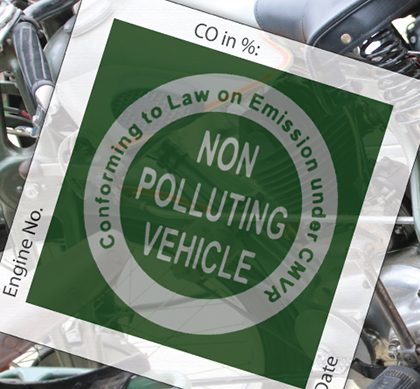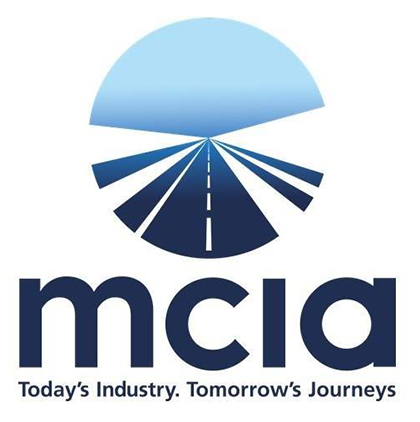 As we recently previously reported today – Monday 8th April 2019 – sees the introduction of the London Ultra Low Emission Zone (ULEZ) in central London.
As we recently previously reported today – Monday 8th April 2019 – sees the introduction of the London Ultra Low Emission Zone (ULEZ) in central London.
Our previous report – London – Critical Measure For ULEZ Exemption – looked at what riders needed to do to meet requirements that would exempt them having to pay the £12.50 24 hours per day – every day, £62.50 per working week (five days if you are lucky enough), £3250 per working year, emission charge to travel in central London.
The Motorcycle Industry Association – MCIA – have today issued a press release relating to the charging of powered two wheelers as part of London’s ultra-low emission zone (ULEZ) and they are not impressed with Transport for London – TfL.
The MCIA major call is, as they say, “Once again calls on TfL to suspend the charge for PTWs and engage on this topic, so that PTWs of all types can assume their rightful place at the heart of the air quality and congestion solution, instead of being erroneously vilified.”
At Motorcycle Minds it looks, to us at least, like motorcycle representation to the mayor of London, the London Transport Committee and Transport for London has not been successful as the issue of continued use of pre Euro 3 PTWs appears limited to those that can afford to pay for a Certificate of Conformity – CoC – depending on the make of motorcycle – or testing in order to determine if the NOx levels of the bikes are acceptable.
The alternative is that it seems more practical to buy a new above Euro 3 emission compliant bike but not all can afford that. This alternative also has an issue as, TfL will not accept that all older models of a bike meet the required emission levels, as proofed by a CoC or test, instead insisting that all individual bikes must have individual proof.
The Who Rides London survey of riders published June 2018 by Motorcycle Minds Elaine Hardy PhD found that, “The fundamental argument, as demonstrated from other studies in Europe, is that PTWs use far less travel time and are far less likely to be held up in traffic jams. Thus in real terms, the pre Euro 3 PTWs would pollute less in comparison with four wheeled vehicles that are compliant with the later 4 and 5 Euro standards, especially diesel fuelled vehicles, simply because they are not standing idle for the lengths of time that cars, vans, lorries and buses are.
It would not be beyond the realms of the authorities of London to look again and consider that a solution can be found with what should be a reasonable and realistic compromise”
It would appear that there was very little compromise in terms of finding a solution that would have benefited both riders of pre Euro 3 bikes (apart from the options indicated above) and even the environmental problem. Ultimately, this was not necessarily the concern of the London Authorities, who had their positions laid out quite clearly but persuasion to chance the intransigence of London authorities and its representatives to open dialogue was not forthcoming, as MCIA have said TfL, “imposed a wall of silence with regard to PTW charging.”
Lets hope that MCIA can bring its own power of industry to bear to achieve something more positive from this.
MCIA – ULEZ
 The MCIA is extremely disappointed to see that riders of Powered Two Wheelers (PTWs), that occupy minimal road space and reduce traffic congestion, are charged at the same rate as single-occupancy 4x4s from the same era.
The MCIA is extremely disappointed to see that riders of Powered Two Wheelers (PTWs), that occupy minimal road space and reduce traffic congestion, are charged at the same rate as single-occupancy 4x4s from the same era.
Transport for London (TfL) has chosen a cut off registration date for PTW exemption of July 2007, even though many motorcycles and scooters registered before then do not exceed the required NOx limit of 0.15 g/km. At present, it is up to the rider to prove that their vehicle is compliant, which may require an emissions test at the cost of £175. It is not hard to imagine the uproar if a similar burden was placed on car drivers.
As the relevant NOx information is not held by DVLA for many older PTWs, the MCIA has offered to help TfL develop a database, so that it would have access to accurate NOx data on which to establish the ULEZ status of each vehicle.
As this is a major piece of work, the MCIA requested a delay in the introduction of PTW charging until it was completed, an idea TfL agreed to consider. However, in the run up to the ULEZ introduction date, TfL has imposed a wall of silence with regard to PTW charging and has not returned any of the MCIA’s many calls on the topic. MCIA have also called for an urgent meeting with Mayor Khan, but his office has yet to respond.
Therefore, a situation now exists whereby riders of compliant machines are potentially charged an unnecessarily £62.50 per working week.
The MCIA once again calls on TfL to suspend the charge for PTWs and engage on this topic, so that PTWs of all types can assume their rightful place at the heart of the air quality and congestion solution, instead of being erroneously vilified.
Tony Campbell, MCIA CEO, commented, “The Mayor of London and TFL have simply got this wrong. PTWs can and do provide cost effective, non-congesting and in most cases, low or zero polluting transport solutions in the urban environment.
We find it quite incredible that TFL and the Mayor continue to discriminate against the users of motorcycles and scooters and to ignore their benefits, while the Mayor has failed again to support his own manifesto commitments”.
Information
- ULEZ proposed in the wake of London’s breaches of EU air quality targets and the wake of successful court cases against the UK Government by environmental group, Client Earth.
- TfL advised that irrespective of vehicle type, if exhaust emissions are produced, they must meet minimum standards
- TfL originally proposed to only exempt PTWs meeting Euro 4 requirements or newer. This would have meant all PTWs produced before 2016 would have been subject to the charge.
- MCIA proposed to exempt Euro 2 and newer. After a great deal of technical discussion, TfL agreed to exempt Euro 3 and newer. This means that a large majority of PTWs currently used are now exempt. As with cars, PTWs registered or built before April 1979 are classed as Historic and not subject to the charge, nor VED, nor road tax. This is a 40 year rolling date.
- MCIA proposed that those PTWs subject to the ULEZ should only be subject to a nominal charge, given the lower ‘real world’ emissions outputs of PTWs on a given journey, as they are not held up by congested traffic to any great degree. TfL continues to reject this proposal and MCIA continues to oppose the fact that non-exempt PTWs will pay the same as non-exempt cars – this is a charge which is both disproportionate and unfair.
- TfL claim that the number of non-exempt PTWs entering the ULEZ zone each day is very low. MCIA disputes this claim, especially in light of the very large number of PTWs which will become subject to ULEZ when ‘phase two’ is rolled out in 2021.
- Some, perhaps many, pre 2007, Euro 2 bikes, may meet the minimum standard. TfL will exempt these machines if proof can be provided, either via the bike’s original Certificate of Conformity (CoC), or if they are tested at a new facility in East London. As anticipated, manufacturers are now receiving requests for CoCs.
- CoCs didn’t exist before 2003 and manufacturers were only obligated to produce one CoC on the point of manufacture after this. A CoC is not normally a requirement for registration.
- It has been suggested by TfL and supported by MCIA that if proof that a complete model type meets the minimum emissions standard, all these PTWs should be exempt. But having suggested the idea, TfL have refused to engage a discussion or put forward proposals which would lead to this happening.
- Given that many pre Euro 3 machines may meet the minimum standard, MCIA proposed to TfL that the charge should not be implemented until the ULEZ database can reliably determine which bikes should be exempt or not. MCIA has offered to work with TfL on the issue, but so far, officials have refused to do so and are not responding to any contact with them. This leaves TfL in a legal grey area – charging vehicles which may indeed be exempt, something that could be subject to a legal challenge. This has been pointed out to TfL by MCIA. They have not responded.
- MCIA’s chief executive Tony Campbell, has written to Mayor Khan to seek a suspension of the charge and to request an urgent meeting – Mayor Khan has not replied to this letter.
- In effect, TfL are forging ahead with the PTW charge and refusing to engage the industry or other organisations.
Information – Motorcycle Minds – London – London – Critical Measure For ULEZ Exemption – Motorcycle Action Group – MAG meets Mayor Khan: and it’s good news – Biker& Bike – Loophole means older motorbikes may still qualify for ULEZ exemption – We Ride London – Euro 3 Compliance Info – Facebook – TFL – Motorcycles, mopeds and more
Original Source – MCIA – The MCIA is the Trade Body representing the Powered Light Vehicle (PLV) Industry. PLVs can be defined as lightweight, two, three and four-wheeled machines, typically powered by zero or low-emission motors.
Also known as L-Category vehicles, they are an answer to the congestion and air quality challenges created by personal and goods transportation.


Leave a Reply